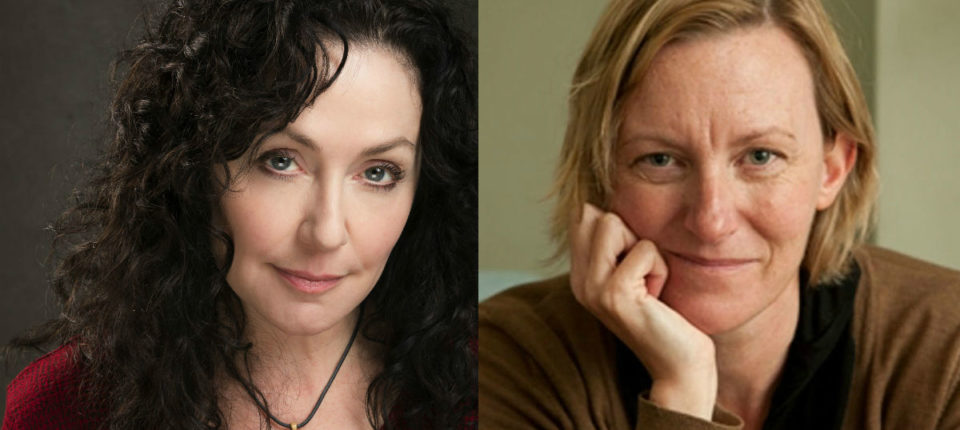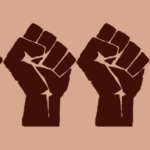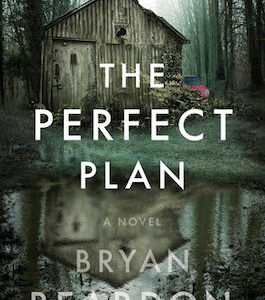Rene Denfeld is a death row investigator whose career inspired a turn to crime fiction, including The Child Finder and The Butterfly Girl, coming out this fall, a novel that follows a young woman investigator named Naomi as she searches for her missing sister, instead finding a haunting community of street children. Gilly Macmillan is the Edgar nominated, bestselling author of What She Knew, The Perfect Girl, Odd Child Out and I Know You Know, and The Nanny, also due out in the U.S. this fall. Ahead of the release of their new books, Denfeld and Macmillan sat down to discuss the wave of new women crime writers—and if being a woman has changed how they write about violence and crime.
Denfeld: I’m eager to talk about how women are changing crime fiction. There is a wave of brilliant women writers who are writing crime. They’re creating fresh new plots, complex women characters and interesting male ones too. I’m thinking about Paula McClain, Mary Kubica, Shari Lapena, Laura McHugh, Karen Dionne, Mel McGrath, Rachel Howzell Hall, Kellye Garrett, Attica Locke, Gillian Flynn, Paula Hawkins…the list is very long.
Macmillan: I would add Heather Gudenkauf, Megan Abbott, Kate White, Kate Moretti, Claire Douglas and many others to that list.
Denfeld: A lot of focus is given to women writing protagonists. But in addition to writing heroines, does being a woman influence what kind of perpetrators you write?
Macmillan: I grew up mostly associating crime and violence with male perpetrators, so that is reflected in my books to an extent, but not all my perpetrators are male. What unites them is that they have grown from my fears, as a woman, about who I can trust. As a woman who has experienced severe trauma, do you think this has influenced the kind of victims you write?
Denfeld: I’m very mindful of how victims are portrayed. Historically it has been women from backgrounds like mine—very poor, from the wrong side of the tracks—and our humanity is denied. We’re just on the page to be violated. So, I want my fictional victims to be more than victims. Like the protagonists, they are real and complete humans. I do the same with the perpetrators. It may be comforting to think perpetrators are monsters, but that’s not reality, either. They are people in our communities. I think there is a hunger for books like ours. Take your forthcoming novel, The Nanny. Obviously, issues of motherhood are big with readers. Moms struggle with guilt, fear, judgement.
Macmillan: Issues of motherhood, and in particular the more painful aspects of motherhood, the things you can’t discuss in the playground, fascinate me. I believe crime fiction can explore these things sensitively, powerfully, and honestly.
Denfeld: An award was recently announced for genre books written without violence against women. While I get the impulse, I also found myself thinking how that could erase the very real violence that does exist against women. Writing about violence can be a way for us to explore what it means, where violence comes from, and what we can do to prevent it.
Macmillan: Yes, and I believe thoughtful depictions of violence might also allow women to understand better and work through things we might have experienced or be frightened of experiencing, providing us with valuable tools for our emotional and psychological armories.
Denfeld: I think that’s why so many women readers are picking up crime books. The deeper desire is to understand violence—why it happens, how we survive. It’s a fantastic opportunity for us writers to explore important issues, like false convictions, police indifference, systemic corruption, mass incarceration, and missing women and children, as well as deeper themes relating to being a woman, including the fear we live with on a daily basis. Also, there is satisfaction in a story where the protagonist solves a crime. It empowers the reader to feel they too can make a difference. I know from my life, one person can make a difference in the world.
I find these redemptive aspects of fiction very liberating. Many of the women writing crime fiction are producing feminist works. They are stories with depictions of complicated real women characters, and often from working class backgrounds too. These are women who might be working two jobs to make ends meet, dealing with family strife, children, aging parents, complicated relationships, and all the other stresses of modern life. They appeal to readers because they can see themselves in the characters and their struggles.
Macmillan: Crime fiction can delve deep into current societal issues and does it best when those issues strike a universal chord, giving us an opportunity to connect with readers in a very visceral way. I wonder if you would agree that crime fiction also has the potential to offer or suggest pathways to healing in the aftermath of crime?
“Most women experience violence at some point in their lives. I think this is part of the appeal of crime fiction. We are processing trauma.”Denfeld: Oh, yes! My own books are more about survival, fighting back, and healing. I am concerned with the after. What happens after the crime? How do we recover, what do we need? How is our society failing us, and what needs to change? Most women experience violence at some point in their lives. I think this is part of the appeal of crime fiction. We are processing trauma.
Macmillan: “Crime” on screen is not relegated in the same way as in books. It’s mainstream here in the UK. As we both have books published on both sides of the Atlantic and elsewhere, I wonder if you’ve noticed any differences in the cultural responses to crime fiction in different countries?
Denfeld: That’s a great point. Our culture is saturated with violence. You can barely turn on a television without being accosted with a naked, blood-splattered woman on the screen. Yet for all that we don’t talk about what we can do differently. Or what we want from the justice system. Our cultural response is to usually place violence outside our experience, for entertainment. It may be comforting, to think, ‘oh, those things happen to imaginary people.’ But the appeal of crime fiction is the knowledge those things happen to real people, including us, and we want to be seen, we want to be heard, with respect and dignity. Fictional victims deserve dignity too.
As far as other countries, my UK publisher of the forthcoming The Butterfly Girl had a different response to the book, because homelessness is not the same issue as it is in the US, though it is certainly a problem. The central character of the book is a 12-year-old street girl. I did add a little context with readers from other countries in mind. I wanted them to understand the experience. How about you?
Macmillan: I haven’t had to revise content for any market, but I’m always fascinated to see how different publishers package and title the same story. My first novel had a variety of different titles, some very thriller-ish and dark, others relating more to the emotional story of the mother and missing child. The covers varied just as much.
Denfeld: I think the work being put out by women right now is groundbreaking in our explorations of the darker parts of humanity, as well as our strengths. But we still have so much sexism in our culture. There is an impetus in our culture to push women to the margins, to have our work and issues deemed less important. This is even more true for women of color and women from marginalized backgrounds. Women of color who write crime fiction are especially ignored when it comes to lists of what books to read, articles and festivals.
“Something is wrong if the only novels published are those which give a voice to people who are already being heard. We need both writers and characters from all walks of life.”Macmillan: Something is wrong if the only novels published are those which give a voice to people who are already being heard. We need both writers and characters from all walks of life. The result will be books that are immeasurably richer and more enriching for readers. It’s not rocket science. It’s what literature is for.
Denfeld: Amen to that! Here’s a toast to all the brilliant fiction about crime being written by women.

















